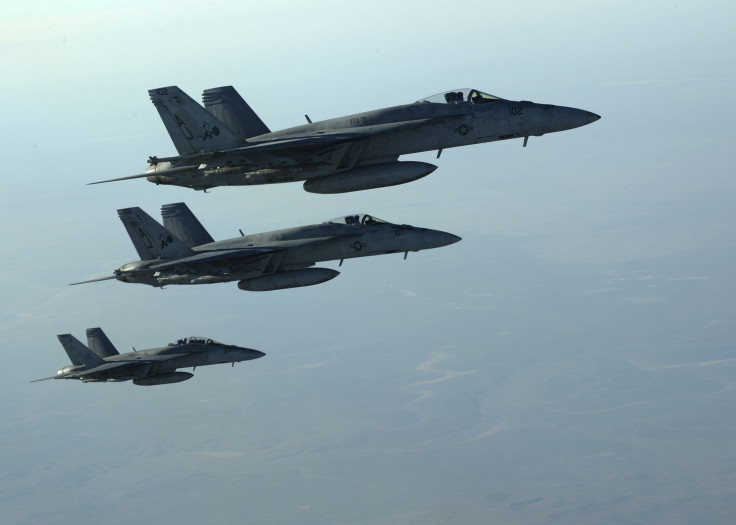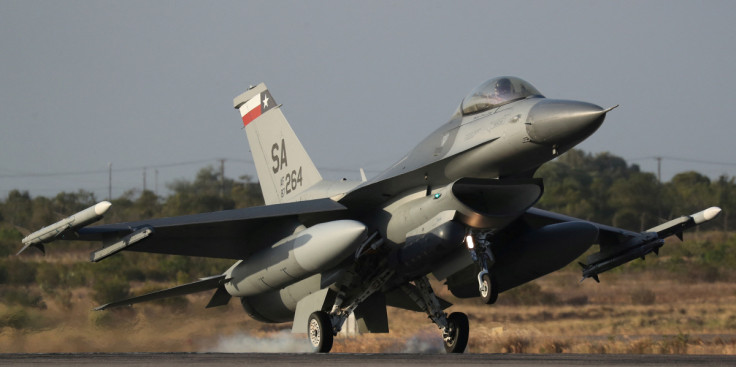Startup That Turns CO2 To Aviation Fuel Signs $65M Deal With US Air Force

Sustainable aviation fuel startup Air Company, which turns carbon dioxide into aviation fuel, has signed a deal worth tens of millions of dollars with the U.S. Air Force.
The company entered a $65 million deal with the Air Force to provide technology to capture carbon dioxide and turn it into "sustainable" aviation fuel on base, TechCrunch reported Wednesday.
According to Air Company, the carbon will initially come from industrial facilities, which is how it currently makes fuel at its "pilot plant" in New York. But the startup is also developing direct air capture, which is part of the technology that Air Company would be building out on site, a spokesperson for the firm told TechCrunch.
"The contract is tiered out over the next several years," the spokesperson said, adding that the company aims to produce "tens of thousands of gallons" of jet fuel for the Air Force.
Air Company CEO Gregory Constantine said that the Air Force deal will help the company take one step closer to eventually powering commercial flights with sustainable aviation fuel.
"These contracts allow you to focus on the growth of technology and the development of technology," Constantine told USA Today.
"The core of our technology is really centered around carbon utilization," he added, noting that roughly 10% of global carbon dioxide emissions would be mitigated if all the methanol, ethanol and kerosene-dependent industries switched to their technology.
"We need to produce more," the CEO said, adding that Air Company plans to open a large-scale production facility in the next few years.
The recent deal might help the U.S. Department of Defense (DoD) mitigate its carbon emission as it is notorious for being a carbon polluter.
According to researchers at England's Lancaster University, the DoD emits more climate-changing gases than most medium-sized countries.
"The U.S. military's carbon footprint is enormous and must be confronted in order to have a substantial effect on battling global warming," the study said.
"Yet [the DoD's] climate policy is fundamentally contradictory – confronting the effects of climate change while remaining the largest single institutional consumer of hydrocarbons in the world, a situation it is locked into for years to come because of its dependence on existing aircraft and warships for open-ended operations around the globe," report co-author Dr. Patrick Bigger of the Lancaster University Environment Center said.

Related Articles





















